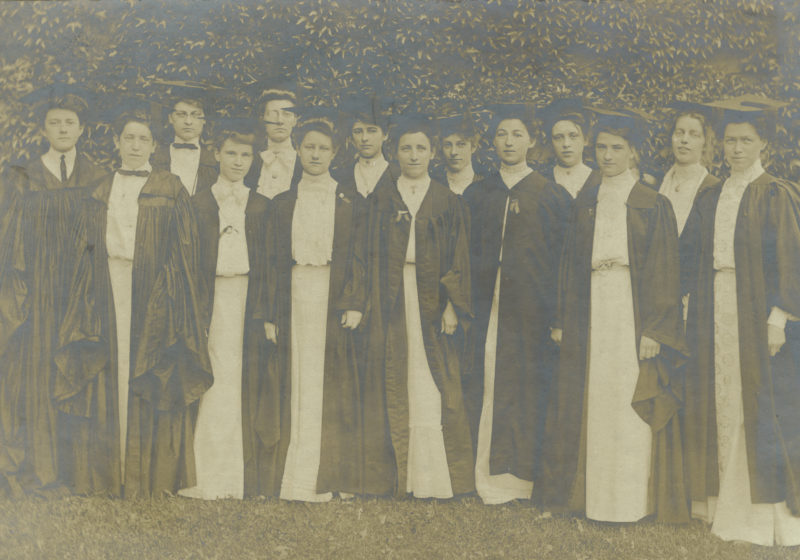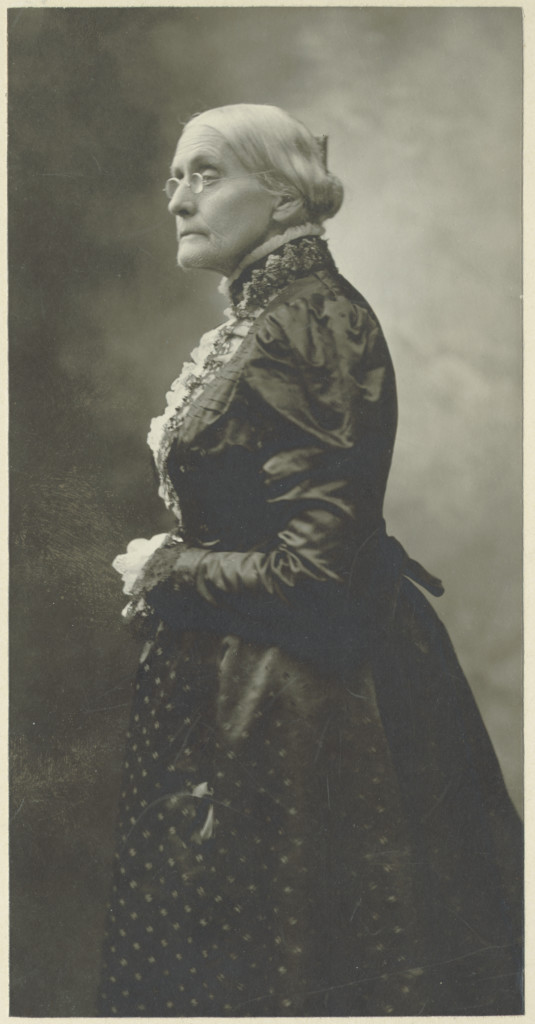Susan B. Anthony’s grave is often the first place of historical significance visited by new students. It’s a 20-minute walk from Rush Rhees, in Mount Hope Cemetery, a modest little headstone plastered with “I VOTED” stickers every election season, a humble monument to one of the great pioneers of the first wave of feminism in America.
Sue B. is so significant to Rochester that students here have a colloquial name for her. We have an entire complex of first-year dorms named after her. The museum in the house where she was arrested (for publicly casting her vote while being a woman) is one of the most popular in the city. Without her sacrifice, women nationwide might never have seen the voting booths from the inside, but she’s also responsible for every girl who’s ever enrolled as a full-time student in this bend of the Genesee.
In the late 1870s, women were allowed to attend lectures at UR, but only as non-matriculated “special students” on Saturday mornings. These determined young women would “come to the University through rain or shine […] to avail themselves of the only opportunity which they have of obtaining college instruction,” one male student wrote in the campus newspaper, then called the Rochester Campus.
Rochester women had no alternatives for higher education within the city, after the Barleywood Female University closed its doors in 1853 after two years of underfunded operation. Anthony herself noted the injustice of excluding half the population from access to higher education, especially with an elite college right in the city. “It is a cruel thing that the girls of Rochester cannot get a college education unless their fathers are rich enough to send them away,” Anthony said.
However, the women’s rights groups of Rochester, with Susan B. Anthony as an active member, began to agitate for coeducation at UR. Their efforts, as well as faculty approval, convinced president David Jayne Hill to consider a proposal for a complementary women’s college, the precedent already set by Columbia’s Barnard and Harvard’s Radcliffe.
Pressure on the University continued to grow. A petition with 500 signatures from influential Rochester citizens urged for the admittance of women on campus. When Professor Joseph Henry Gilmore opened his lectures to women, 300 attended, forcing him to hold class in the chapel. One male student noted, “By opening its doors to ladies, our University would secure what it most needs, more students and more money.”
All this culminated in 1898, when the Board of Trustees passed a resolution to admit women to UR — but only if $100,000 (equivalent to $3 million today) was raised to fund the endeavor. Anthony, who didn’t yet know of the monetary caveat, wrote “Glory Hallelujah! This is better news to me than victory over Spain. It is a peace-victory, achieved only by the death of prejudice and precedents.”
But when the fundraising deadline drew to a close in 1899, the full sum had yet to be secured. Fortunately, the trustees halved the amount required (down to $50,000) and granted another year.
Then came September 7th, 1900 — the day before the final deadline, and right before the new semester. The prospects were slim, with $8,000 ($200,000 today) left to raise and only one member of the fundraising committee currently in the city — Fannie Bigelow, the secretary. That night, Bigelow phoned Anthony, who had just returned to Rochester from a trip to Wyoming, to tell her of the predicament.
Anthony, resolved to win the Rochester girls their right to education, set out the next morning with Bigelow to get the rest of the money. The 81-year-old Anthony and her younger companion drove house-to-house, person-to-person, all over Rochester in a carriage for the entire day.
Little by little, they obtained money from sympathizers, and by mid-afternoon, all but $2,000 had been raised. Samuel Wilder, Anthony’s acquaintance who had already pledged money to the cause, agreed to guarantee the last sum under his name. With this, Anthony rushed off to the Board of Trustees meeting currently in session to inform them of the last-minute success.
Despite the hard labor of Anthony and Bigelow that day, the effort was almost for naught. The trustees refused to accept the last guaranteed $2,000, because of Wilder’s doubtful health. With decades of progress on the brink, Anthony walked over to the trustees and said, “I now pledge my life insurance for the $2,000.”
Anthony’s diary entry from later that day read: “They let the girls in […] there was no other alternative [for the Trustees].”
Half a year after women were officially admitted, Anthony would write in a letter to a friend: “I shall never regret that day’s labor. It was the added ounce that broke the camel’s back in more senses than one. In the largest sense, the back of the superstition, bigotry, and selfishness that held those old doors shut tight against the women.”






